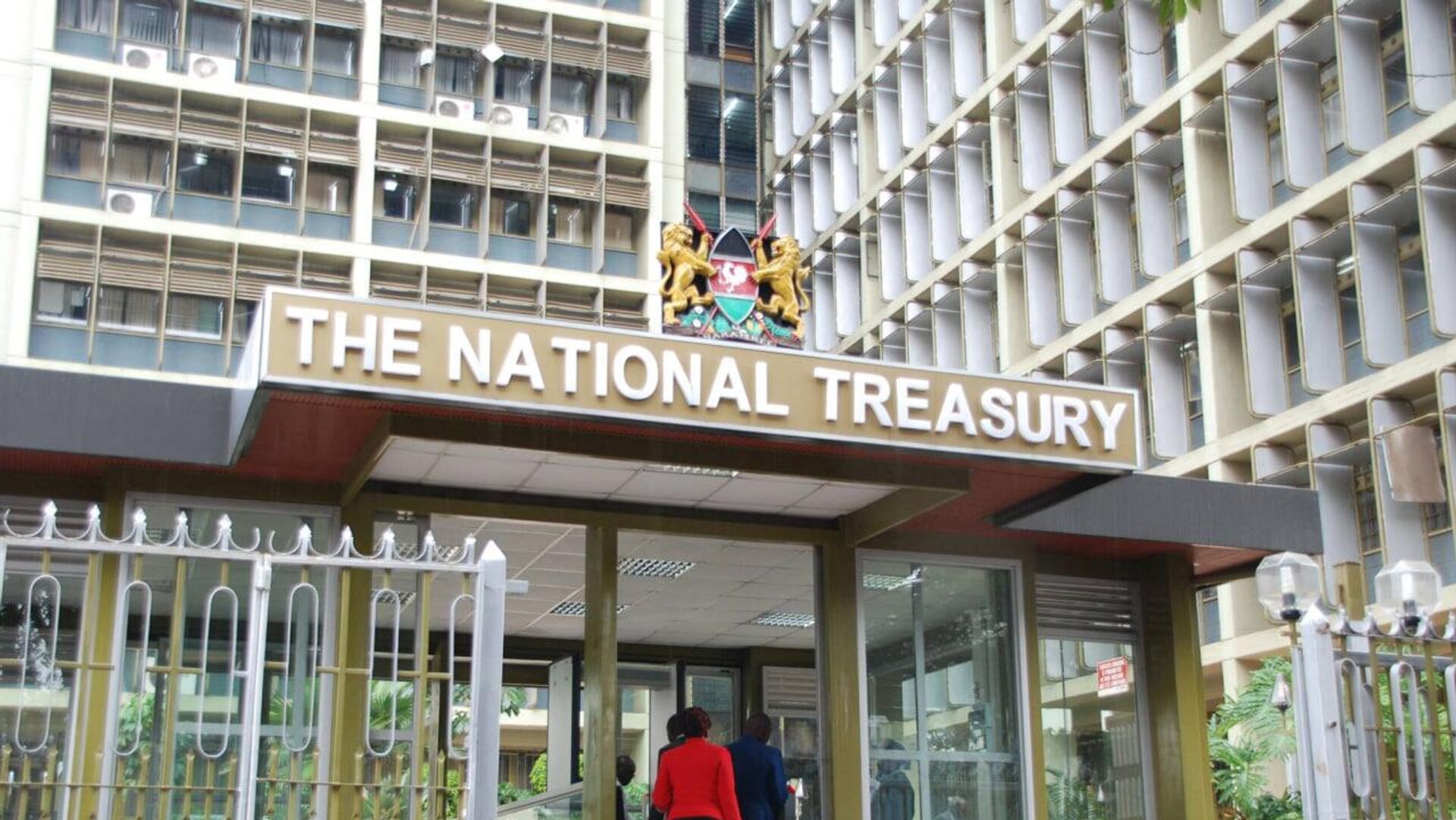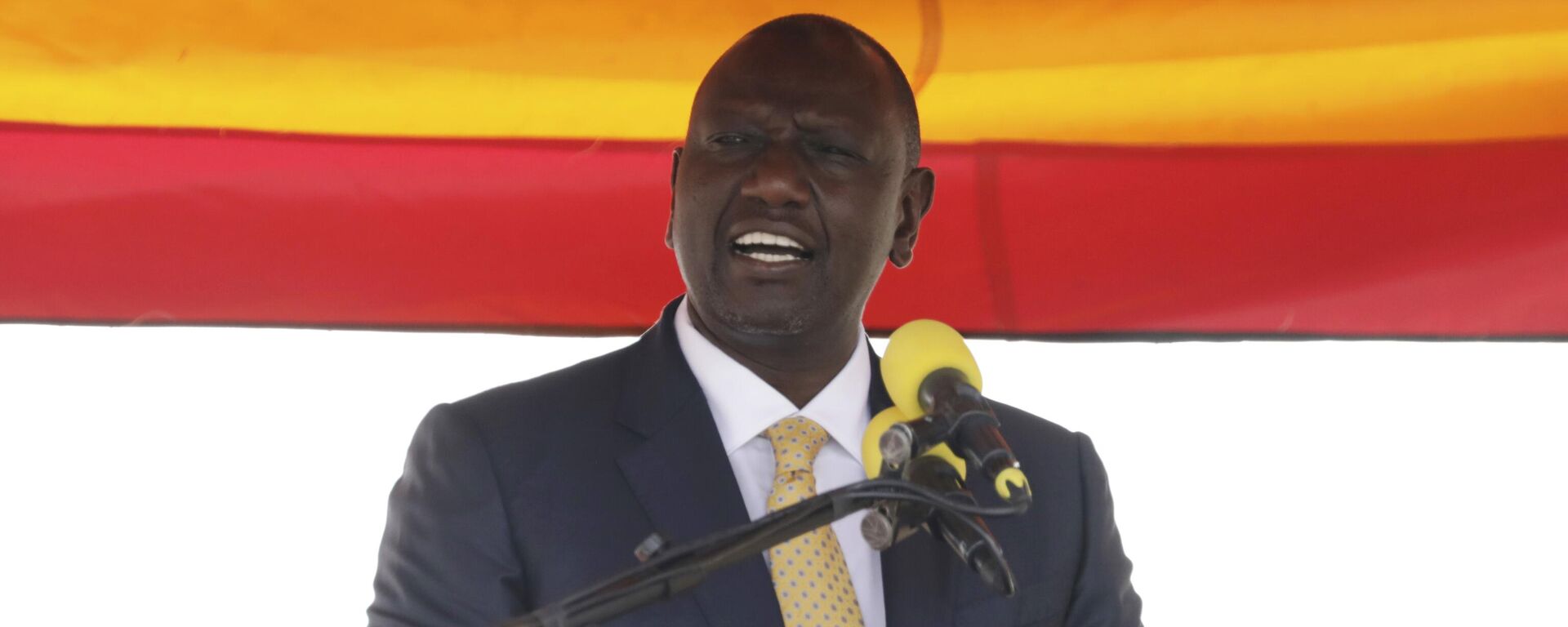https://en.sputniknews.africa/20240704/kenyas-central-bank-expert-takes-lead-in-debt-management-office-1067366580.html
Kenya's Central Bank Expert Takes Lead in Debt Management Office
Kenya's Central Bank Expert Takes Lead in Debt Management Office
Sputnik Africa
The finance ministry of Kenya highlighted Raphael Owino's skills as a valuable asset to the country. The former head of the debt management office, Sirima... 04.07.2024, Sputnik Africa
2024-07-04T16:02+0200
2024-07-04T16:02+0200
2024-07-04T20:15+0200
sub-saharan africa
kenya
east africa
william ruto
economy
international monetary fund (imf)
taxes
president
central bank
finance
https://cdn1.img.sputniknews.africa/img/07e8/07/04/1067366679_0:0:1281:721_1920x0_80_0_0_df7e9a7a59833ad63ad75629d36691ba.jpg
Kenya has appointed central bank economist Raphael Owino as the new head of its debt management office, the finance ministry announced on Wednesday. Owino succeeds Haron Sirima, who announced his resignation in January.The finance ministry praised Owino's expertise in public debt management, including maintaining sustainable debt levels, reducing long-term servicing costs, and managing contingent liabilities.The public office also thanked the outgoing director general, Dr. Haron Sirima, for "his outstanding work at the National Treasury."Earlier this year, Kenya's public finances came under scrutiny amid fears that the country would default on a $2 billion international bond.In an effort to manage the debt, the finance ministry issued a new $1.5 billion bond in February to buy back most of the $2 billion bond, which was repaid last month.In addition, violent protests erupted in the Kenyan capital and other parts of the country in mid-June over a proposed tax increase bill, which President William Ruto eventually withdrew. This action could complicate efforts to meet the International Monetary Fund's (IMF) requirement to reduce the budget deficit from 5.7% to 3.3% of GDP.Although protests erupted across the country after parliament debated and passed a bill, the IMF reportedly insisted on the measures even after violence broke out. The bill proposed a 16% value-added tax (VAT) on bread, sugar transportation, mobile and financial services, and foreign currency transactions. It also included a 2.5% excise tax on cars and vegetable oil. In response to the escalating protests, Ruto refused to sign the bill and sent it back to parliament for further review.According to the Kenya National Commission on Human Rights, 39 individuals lost their lives and 361 were injured over the course of two weeks of protests.
https://en.sputniknews.africa/20240704/kenyan-opposition-urges-president-to-hold-snap-elections-amid-protests-1067362599.html
kenya
east africa
Sputnik Africa
feedback@sputniknews.com
+74956456601
MIA „Rossiya Segodnya“
2024
News
en_EN
Sputnik Africa
feedback@sputniknews.com
+74956456601
MIA „Rossiya Segodnya“
Sputnik Africa
feedback@sputniknews.com
+74956456601
MIA „Rossiya Segodnya“
kenya, east africa, william ruto, economy, international monetary fund (imf), taxes, president, central bank, finance
kenya, east africa, william ruto, economy, international monetary fund (imf), taxes, president, central bank, finance
Kenya's Central Bank Expert Takes Lead in Debt Management Office
16:02 04.07.2024 (Updated: 20:15 04.07.2024) The finance ministry of Kenya highlighted Raphael Owino's skills as a valuable asset to the country. The former head of the debt management office, Sirima, told local media that the ministry needs "young blood," as he has been in charge since 2018.
Kenya has appointed central bank economist Raphael Owino as the new head of its debt management office, the finance ministry
announced on Wednesday. Owino succeeds Haron Sirima, who announced his resignation in January.
The finance ministry praised Owino's expertise in public debt management, including maintaining sustainable debt levels, reducing long-term servicing costs, and managing contingent liabilities.
"Owino brings a wealth of knowledge and valuable experience from his previous role at the Central Bank of Kenya," the statement said. "We are confident that Mr. Owino’s expertise, experience, and insights will greatly benefit our organization as he steps into this critical role."
The public office also thanked the outgoing director general, Dr. Haron Sirima, for "his outstanding work at the National Treasury."
Earlier this year, Kenya's public finances came under scrutiny amid fears that the country would default on a $2 billion international bond.
In an effort to manage the debt, the finance ministry issued a new $1.5 billion bond in February to buy back most of the $2 billion bond, which was repaid last month.
In addition, violent protests erupted in the Kenyan capital and other parts of the country in mid-June over a proposed tax increase bill, which President William Ruto
eventually withdrew. This action could complicate efforts to meet the International Monetary Fund's (IMF) requirement to reduce the budget deficit from 5.7% to 3.3% of GDP.
Although protests erupted across the country after parliament debated and passed a bill, the IMF reportedly insisted on the measures even after violence broke out.
The bill proposed a 16% value-added tax (VAT) on bread, sugar transportation, mobile and financial services, and foreign currency transactions. It also included a 2.5% excise tax on cars and vegetable oil. In response to the escalating protests, Ruto refused to sign the bill and sent it back to parliament for further review.
According to the Kenya National Commission on Human Rights, 39 individuals lost their lives and 361 were injured over the course of two weeks of protests.


